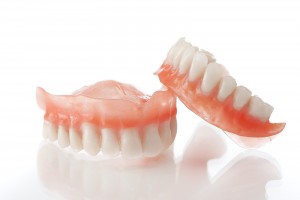A good set of dentures is often a necessity for a good quality of life. They are an investment and should be treated as such. There are a number of problems with poorly fitted dentures that can negatively impact the person wearing them. Here are some of the most common problems with dentures that just don’t fit well, and the adverse side effects that can come with them.
Discomfort
Dentures that don’t fit well aren’t just a cosmetic issue. In fact, sometimes, observers cannot even tell that dentures do not fit well. Even if others do not notice, you can feel it without a doubt. There can be an immense sense of discomfort that goes with poorly fitted dentures. It can make you try to adjust your jaw repeatedly to make it feel better. In truly bad cases, it can go beyond discomfort. In fact, it can be exceptionally painful for the people wearing these dentures. Some people even find them absolutely unwearable. This is money poorly spent because you aren’t getting the improvement in quality of life that was the reason for the purchase to begin with.
Misplacement or Embarrassment
One of the other major issues that comes from poorly fitted dentures is the opposite of discomfort. They are so loosely fitted that they just can’t stay in, often falling out. There are multiple issues that accompany this. First, a sign of good dentures is that people can’t necessarily tell that you have them just by looking. However, that illusion can be promptly dispelled if dentures fall out in front of others at a gathering. This can be hugely embarrassing. Secondly, when dentures fall out, it often isn’t into a sanitary location. Finally, sometimes dentures that have fallen out can go unnoticed. Dentures can fall out when unexpected and unrealized and only later will it be known they are gone – and then they can be hard to find. People will try to rectify this situation by using denture adhesive, but this is often an imperfect solution that doesn’t properly address the problem.
Gum Disease
The most serious of the negatives of poorly fitted dentures is gum disease. Perfect dentures form a near perfect seal with any remaining teeth so that they function exactly like regular teeth when in use. However, when dentures don’t fit properly, pockets form where plaque and tartar can build up. These are known as plaque traps. These areas of plaque buildup can lead to gum disease such as gingivitis. This can only exacerbate dental problems as well as impact any remaining teeth, leading to a further decline in quality of life.





